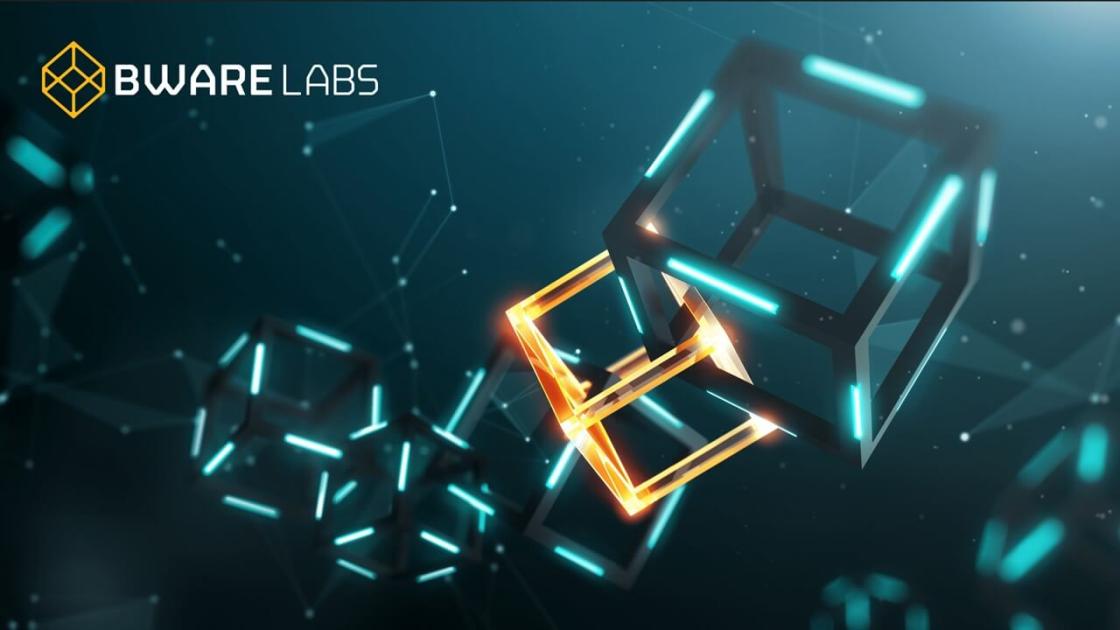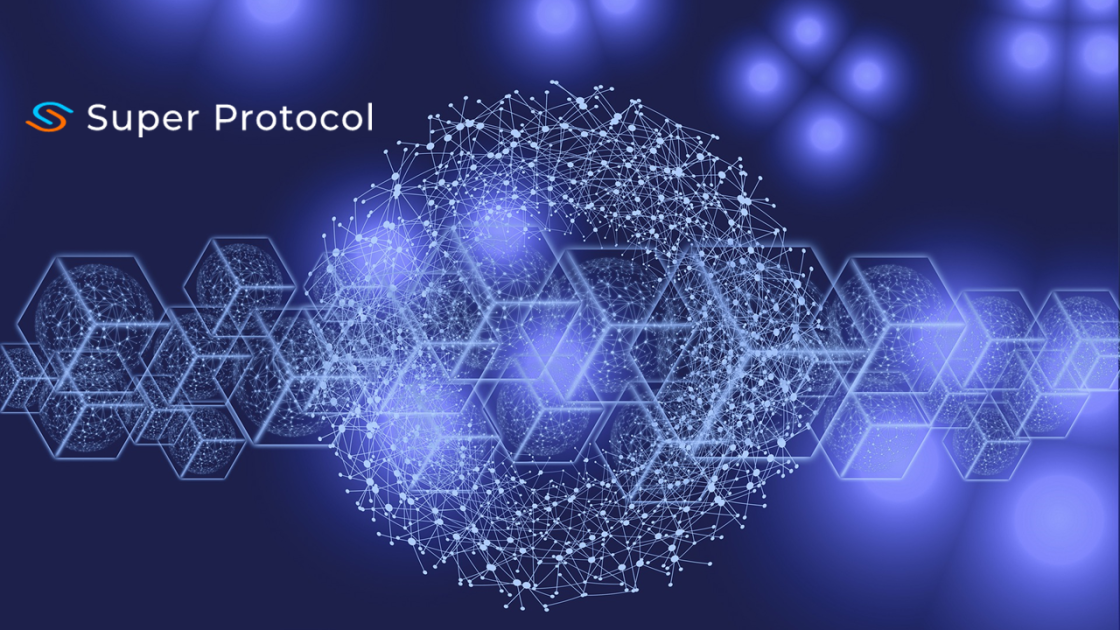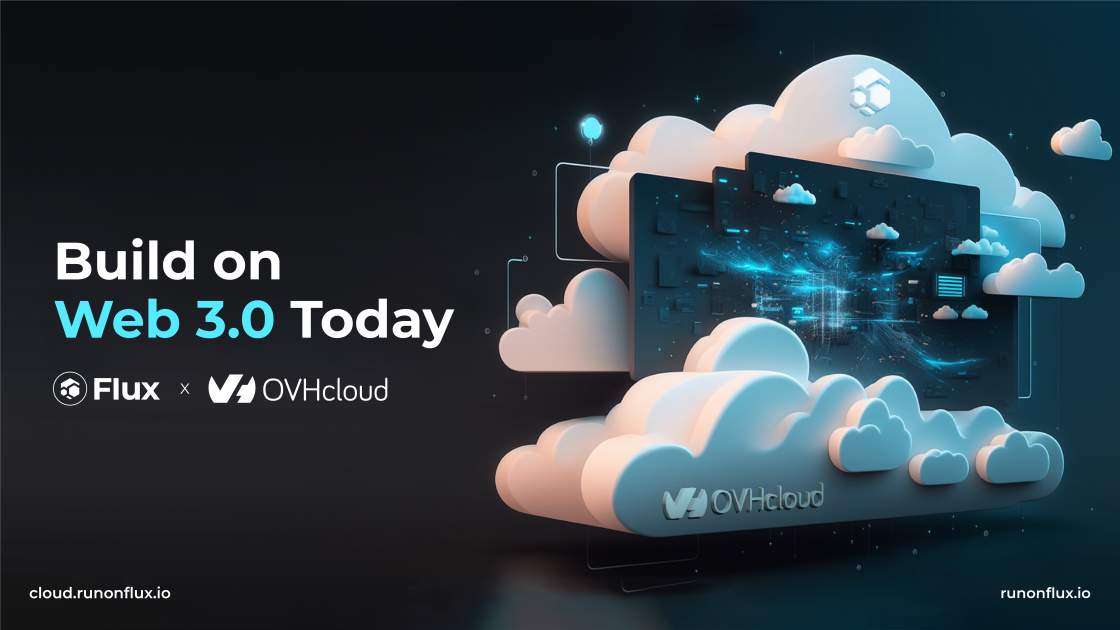Powering Blockchain Technology
Decentralised Cloud Infra for Blockchain
Fast, Secure, and Cost-Optimised
Deploy your validators, sequencers, RPCs, and archival nodes on AMD-powered bare metal across 46 datacenters . Leverage a truly decentralised architecture with free private networking on a 100 Tbps backbone, built-in DDoS protection, and expert support from our global blockchain team, all at the best price on the market without hidden costs.
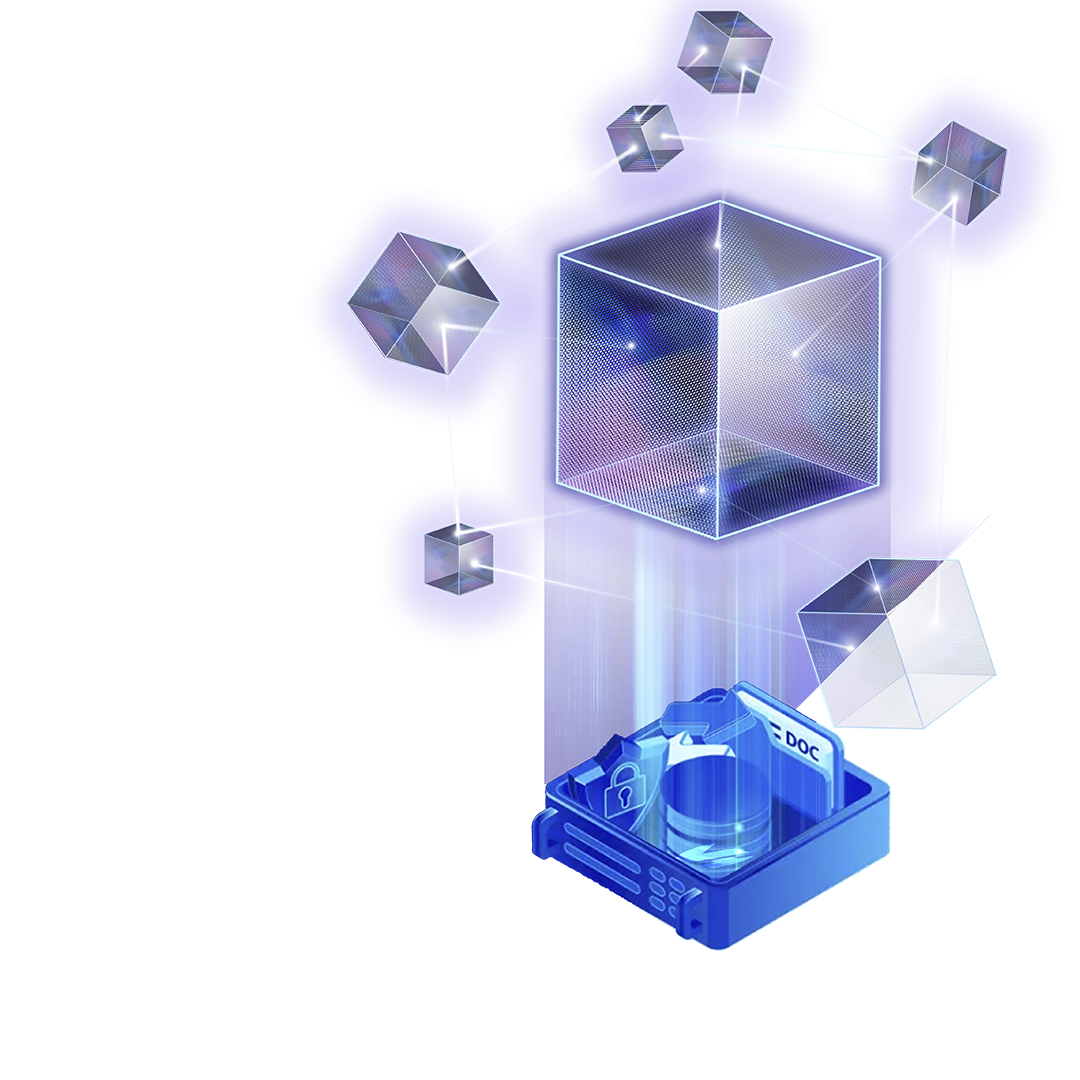

Best price/performance ratio
Baremetal with network included

Secure by design
DDoS & Network protection built-In

Blockchain-fluent experts
Global team ready to help you

Decentralised by nature
Infra across 10 countries
Markets & Markets
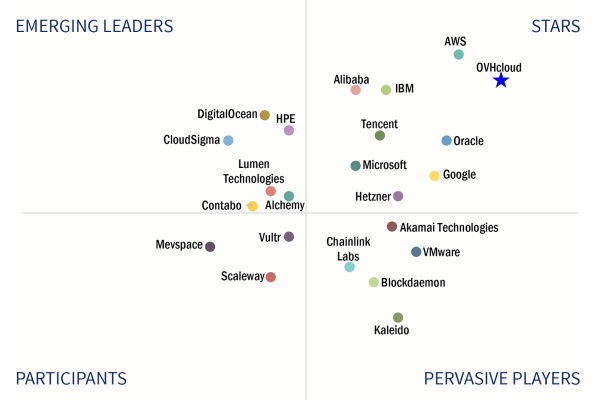
Markets & Markets' evaluation matrix assesses major blockchain infrastructure players based on their product footprint and market share, using criteria such as product offerings, features, and revenue. Vendors are then categorized into four groups - Stars, Emerging Leaders, Pervasive Players, and Participants - based on their performance in these criteria, using a scoring system and comparison scorecard.
Markets and Markets identify OVHcloud as one of the star players that provide robust blockchain infrastructure and customised solutions. They possess innovative offerings and adopt growth strategies to achieve technological consistency in the blockchain space.
Explore our solutions for blockchain
A comprehensive portfolio of products to meet your blockchain needs. Deploy and get started in minutes.
Get in touch with our Blockchain experts
Empowering a thriving ecosystem
See who is already ahead
Trusted by millions
OVHcloud is a trusted partner for blockchain innovation, with a global presence that has earned the trust of millions. Our robust infrastructure provides a secure and scalable foundation for blockchain applications, empowering you to succeed in the rapidly evolving blockchain landscape.
Here are some key highlights of our global infrastructure:
- 100 Tbps global network capacity
- 46 datacenters implemented across 4 continents
- 44 redundant PoPs worldwide
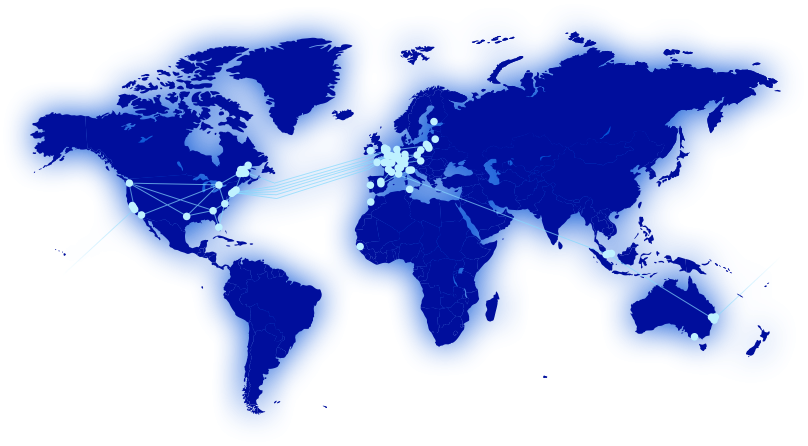
FAQs
What type of infrastructure is best for hosting a blockchain project?
The best infrastructure for hosting a blockchain project depends on your specific use case, but most projects benefit from dedicated servers or cloud infrastructure that offers high performance, low latency, and strong network reliability.
For blockchain nodes, validators, sequencers, or RPC endpoints, you need infrastructure that supports:
- Scalability to handle traffic spikes
- High bandwidth with low packet loss
- DDoS protection to mitigate attacks
- Global availability for decentralised deployment
- Transparent pricing with no hidden traffic costs
Many blockchain teams choose bare metal servers to avoid virtualisation overhead and gain full control over their environment, especially when performance and decentralisation are priorities.
Who uses dedicated servers for blockchain projects?
Dedicated servers are widely used in the blockchain space by teams that need performance, control, and reliability. Common users include:
- Validator node operators looking for consistent uptime, low latency, and bare-metal performance.
- RPC and archival node providers, who require high IOPS and large storage capacity to serve blockchain data at scale.
- Layer 2 projects and rollup developers, running custom infrastructure for scalability solutions.
- DeFi and Web3 platforms, hosting backend services and APIs on secure, isolated environments.
Dedicated servers are especially popular among builders who prioritise decentralisation, need root access, or want to avoid the noisy-neighbour effect common in virtualised environments.
How can you easily deploy a blockchain node?
You can deploy a blockchain node easily on OVHcloud Dedicated Servers by using automation scripts or API calls to manage infrastructure without manual steps.
OVHcloud follows an API-first approach, giving blockchain teams the ability to automate node deployment, server provisioning, and network setup at scale. For even more flexibility, OVHcloud offers an official Terraform provider, allowing you to define your infrastructure as code and deploy across multiple datacentres with consistency.
This is particularly useful for blockchain projects running multiple nodes, like validators, RPC endpoints, or sequencers, where automation ensures speed, reliability, and reproducibility.
What kind of servers are best for Web3 applications?
Web3 applications benefit most from high-performance, low-latency servers that offer full control, scalability, and strong network reliability. Depending on your workload (from running smart contracts to serving decentralised front-ends or hosting full blockchain nodes), the ideal setup often includes:
- Bare metal servers, for maximum performance, root access, and isolation, especially useful for validators, sequencers, or storage-heavy applications.
- Cloud instances for front-end or API layers that need elasticity and fast scaling.
- High IOPS storage for fast read/write operations, important for indexing services or dApps with real-time data access.
- Global distribution to ensure latency is minimised and users can access services from any region.
OVHcloud offers dedicated servers with no virtualisation overhead, private networking, and free DDoS protection, making them an ideal choice for Web3 developers looking for both performance and reliability without hidden costs.
How can you track the carbon footprint of your blockchain infrastructure?
Tracking the carbon footprint of your blockchain infrastructure is key to building more sustainable Web3 projects. To do this, you need visibility into the energy consumption and environmental impact of your infrastructure provider.
OVHcloud helps customers monitor and reduce their carbon footprint by providing:
- A Carbon Calculator that estimates emissions associated with your use of OVHcloud services, including dedicated servers and cloud instances.
- Data from ISO 50001-certified datacentres, which follow strict energy efficiency standards.
- Full ownership of water- and energy-efficient infrastructure, optimised for lower emissions through practices like water cooling and waste heat reuse.
- Transparency reports on energy use and sustainability initiatives.
By choosing a provider with eco-designed datacentres and tools for carbon tracking, blockchain teams can align their infrastructure with sustainability goals and support the broader mission of a greener Web3 ecosystem.
